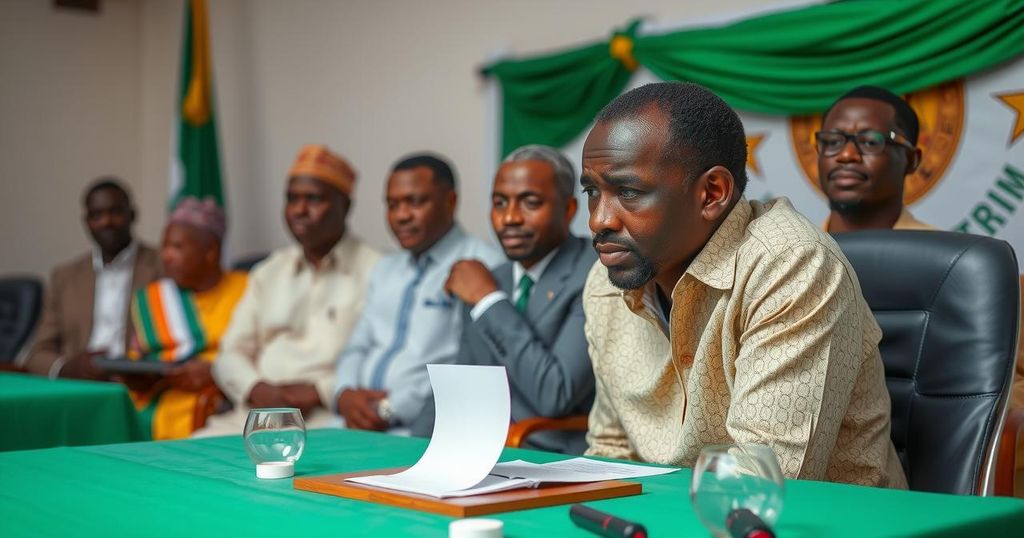Comoros Conducts Boycotted Parliamentary Election Amid Political Turmoil

Comoros held a parliamentary election that faced boycotts from some opposition leaders, citing authoritarianism under President Azali Assoumani and concerns over election integrity. Approximately 330,000 of the 850,000 residents were registered to vote, with expectations of low turnout due to disillusionment with the political system.
Comoros recently conducted a parliamentary election amidst notable boycotts by several opposition leaders who have accused President Azali Assoumani of fostering authoritarianism and ensuring the electoral process lacks integrity. This parliamentary election, which took place on a single day, is significant as it will determine the composition of the 33 seats in the legislature. While approximately 330,000 residents are registered to participate in the election out of a total population of 850,000, opposition parties anticipate a poor turnout due to widespread disillusionment with the political system.
President Assoumani’s party, the Convention for the Renewal of the Comoros, previously secured 20 out of the 24 legislated seats during the parliamentary elections of 2020. On election day, he cast his vote in Mitsoudjé, located on Grande Comore, the largest island. The opposition termed the 2020 electoral proceedings a “masquerade,” claiming they lacked fairness, and a similar sentiment was echoed regarding Assoumani’s re-election in 2022, which incited public unrest.
Among the opposition parties participating in the boycott was the Juwa Party, led by former President Ahmed Abdallah Sambi, which has consistently opted out of election activities since 2020. Comoros, an archipelago comprising three islands off the eastern coast of Africa, has been struggling with political instability characterized by multiple military coups since its independence from France in 1975. Azali Assoumani has been in power through various terms, having first assumed leadership in 1999 after orchestrating a coup. Recently implemented constitutional changes have allowed him to circumvent term limits, thereby extending his presidency.
The Africa Center for Strategic Studies, a research body funded by the U.S. Congress, highlights that Assoumani’s tenure is distinguished by increasing political repression and non-competitive elections. Despite these challenges, voting proceeded as planned, even as Tropical Cyclone Dikeledi threatened to impact the islands.
The political landscape in Comoros has been tumultuous since the nation attained independence in 1975, with numerous military coups shaping its history. President Azali Assoumani has been a pivotal figure in this history, rising to power first through military means and subsequently altering constitutional provisions to maintain his authority. The opposition’s resistance to recent elections reflects a deep-rooted dissatisfaction with the electoral process, perceived authoritarianism, and the overall democratic framework within the nation. The current situation is further complicated by external environmental factors, such as Tropical Cyclone Dikeledi, which is affecting the region at the same time as the election.
In conclusion, the recent parliamentary election in Comoros marks a significant moment in the island nation’s contentious political landscape, characterized by boycotts from opposition parties disillusioned with the integrity of the democratic process. President Assoumani’s continued dominance, amid allegations of repression and electoral misconduct, raises serious questions about the future of governance in Comoros. The lack of faith in the electoral process from significant segments of the population highlights the need for potentially transformative changes in political practices and dialogue.
Original Source: abcnews.go.com






